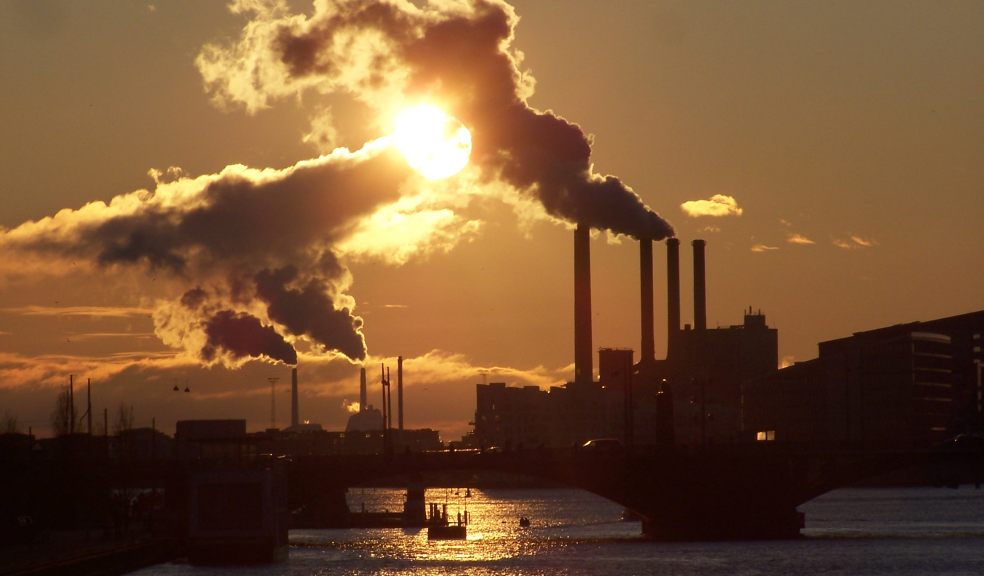
2015 - Climate Crunch Year
A recent scientific report has suggested that 4 out of 9 ‘planetary boundaries’ have been crossed*.
If pushed beyond safe limits, the Earth may become less hospitable for humankind to prosper. In this update on the boundaries, the authors found that climate change, the loss of biosphere integrity (through species extinction, and the loss of genetic and functional diversity), land-system change (for example deforestation), and biochemical flows (such as phosphorus and nitrogen from fertilisers) have passed beyond safe levels.
The other five processes relate to ozone depletion, ocean acidification, freshwater use, atmospheric aerosols and the introduction of new substances into the air. Together these nine all play a part in regulating the stability of the Earth’s eco-systems. Of them all, the immediate focus has surely to be on global warming.
We now know that extreme weather events now cover 10% of all weather activities. 14 out of 15 of the hottest years ever measured have been since 2000. 2014 was the warmest on record across the whole world.
So it’s not surprising that it is being said that 2015 is Climate Year, especially because the UN COP 21 Summit inParis this December is really a crunch time in reaching an international agreement on carbon emissions following the Kyoto Protocol. Success in Paris is critical to avoiding the worst impacts of the crisis. With a strong agreement, we can seize the opportunity to turn away from the catastrophe from which we have been heading and put our civilization on a path toward a sustainable and prosperous future.
It doesn't take much more than looking out the window to see how drastically different and unpredictable extreme weather events have become. These events are just the beginning of what the scientists tell us we will see unless we act soon. Fortunately, we have all the tools we need to solve the climate crisis - if we stand up as one and demand action.
There are now many organisations, campaigns and actions that people of faith (and none) can engage with to encourage the world’s decision makers to make this a serious and urgent priority. This is especially true in a General Election year in the UK. No other issue but climatic change is causing weather chaos, food systems collapse, millions of displaced peoples, economic instability, species loss and ill health on the same scale. No other issue is so difficult to face up to – partly because it could mean human extinction. No other issue is so pervasive and touches so many people and places across the globe.
Author George Marshall addresses this matter in his new book ‘Don't Even Think About It: Why our Brains Are Wired to Ignore Climate Change’. Whereas with most threats we need to identify an external cause, with a changing climate the danger is within – we need to criticise and question our very own lifestyles. We all contribute to it, so proportioning blame and counter attacking is a questionable strategy. Instead it requires sacrifice and self-denial, a total challenge to almost everything we take for read.
So what is needed is a new story – a different narrative which motivates us in alternative ways. This is where, for example, the Transition Movement is so powerful because it has the potential for us to re-value our lives - and to like what we find. To share resources in our streets and communities (whether seeds, tools, food or transport), is counter-cultural to the prevailing wind of individualism. Every time we share rather than compete, we are not only addressing climate emissions (directly or indirectly), we are also making a statement about wanting to belong to a community.
Someone once pointed out “that the answer to poverty is not wealth. The answer to both poverty and wealth is community”. We need to rediscover a deeper sense of conviviality and cooperation. So let us try using the word ‘we’ and not ‘I’; ‘us’ instead of ‘me’; and ‘together’ rather than ‘alone’. As the saying goes, if we do this, even Illness becomes Wellness, and Ill feeling becomes feeling Well!
That is where Lent comes in – a regular opportunity to reappraise our lives with others and to seek for clues for new ways of living. That is why I support the 2015 SouthWest Lent Carbon Fast and encourage others to do the same.
We could be trying to gain the whole world yet losing the entire future. Cutting back on carbon for 40 days is a strong symbol about choosing life over death.
See: www.ecochurchsouthwest.org.uk/carbon-fast/
• The findings are published by an international team of 18 researchers in the journal Science (16 January 2015)
This article first appeared in Devon Churches Green Action News, February 2015

















